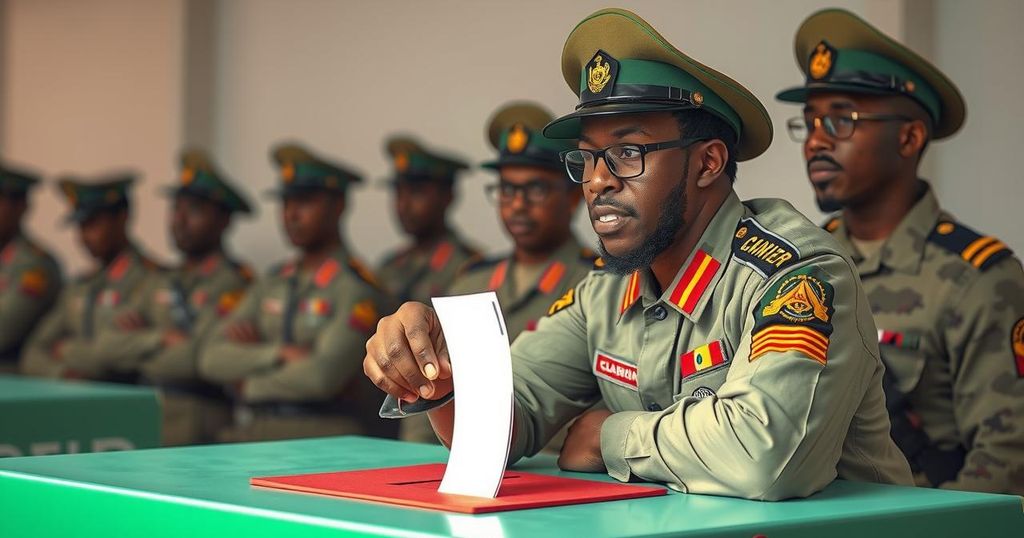World news
” MASRA, 2024 ELECTIONS, AFRICA, AP, CHAD, DEBY, DEBY ITNO, DEMOCRACY, DJAMENA, ELECTIONS, GOVERNANCE, GOVERNMENT, ID, IDRISS DEBY ITNO, MAHA, MAHAMAT IDRISS DEBY, MAHAMAT ISSA HISSEIN, MOROCCO, N ’ DJAMENA, NATIONAL ASSEMBLY, SAHEL, SU, SUCCES MASRA, TRANSFORMERS, VOTER TURNOUT
Fatima Alavi
0 Comments
Chad’s Parliamentary Elections: Low Turnout and Opposition Boycott Amidst Military Transition
Chadian parliamentary elections concluded with low voter turnout, marked by an opposition boycott. The elections were intended to end military rule, though many citizens expressed skepticism regarding the electoral process due to previous disputes. The atmosphere remained tense with concerns about future governance amidst ongoing security challenges.
Chad recently held parliamentary and regional elections, concluding a three-year period of military rule; however, the participation rate was notably low. Many opposition groups, including the prominent Transformers party, opted to boycott the elections, citing concerns over the lack of credible electoral oversight. This marked a significant moment as it was the first parliamentary election in the country in over a decade, following a highly disputed presidential election that saw military leader Mahamat Idriss Deby maintain his position of power. Voter turnout in the capital, N’Djamena, was exceedingly sparse, with few individuals observed casting votes at various polling stations. Although over 8 million voters were registered to elect 188 members to the National Assembly, the atmosphere was heavily influenced by the ongoing discontent with the electoral process. Mahamat Issa Hissein, a resident of N’Djamena, expressed a hopeful sentiment for the elected officials to create a better future for the nation. Amid these disruptions, the election is considered pivotal as it is part of a broader transition towards restoring democratic governance in Chad, amidst security challenges such as militant threats in the Lake Chad region.
Chad has experienced a tumultuous political history since gaining independence from France in 1960, with little progress toward democratic governance. Following the death of long-time president Idriss Deby Itno, his son, Mahamat Idriss Deby, took control in 2021, initiating a transitional government. The recent parliamentary elections were anticipated to signify the culmination of a transition intended to restore democracy, following a national dialogue and a constitutional referendum. However, significant opposition boycott has marred the legitimacy of these elections and reflects ongoing tensions within Chadian political dynamics.
The parliamentary elections in Chad reflect a critical juncture for the nation as it seeks to transition from military rule to democratic governance. Nonetheless, the low voter turnout and significant opposition boycott underscore substantial challenges, implying that many citizens remain skeptical of the electoral process. Moving forward, Chad’s ability to establish a stable and credible democracy will depend heavily on how it addresses these political concerns and security issues that continue to plague the nation.
Original Source: apnews.com




Post Comment